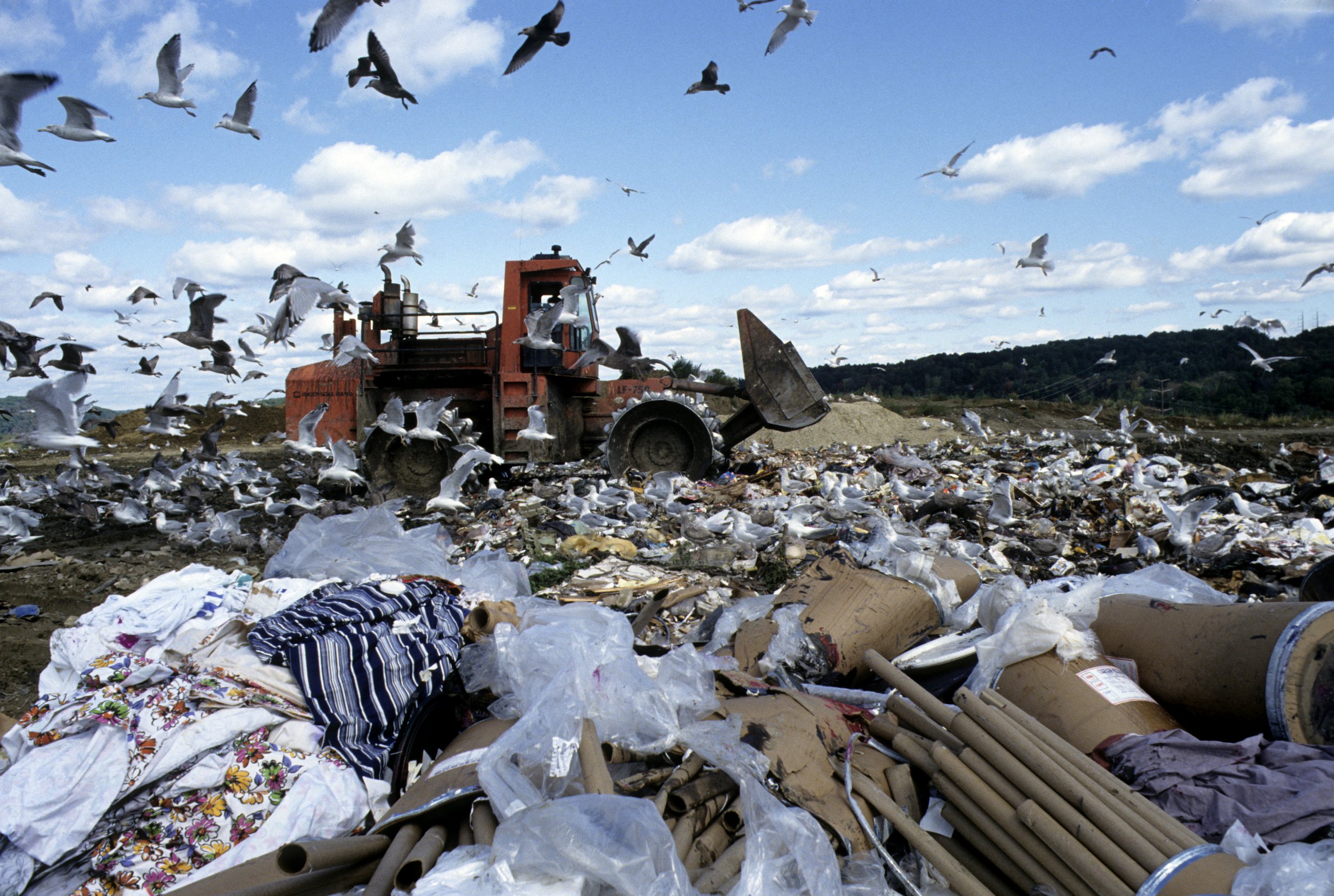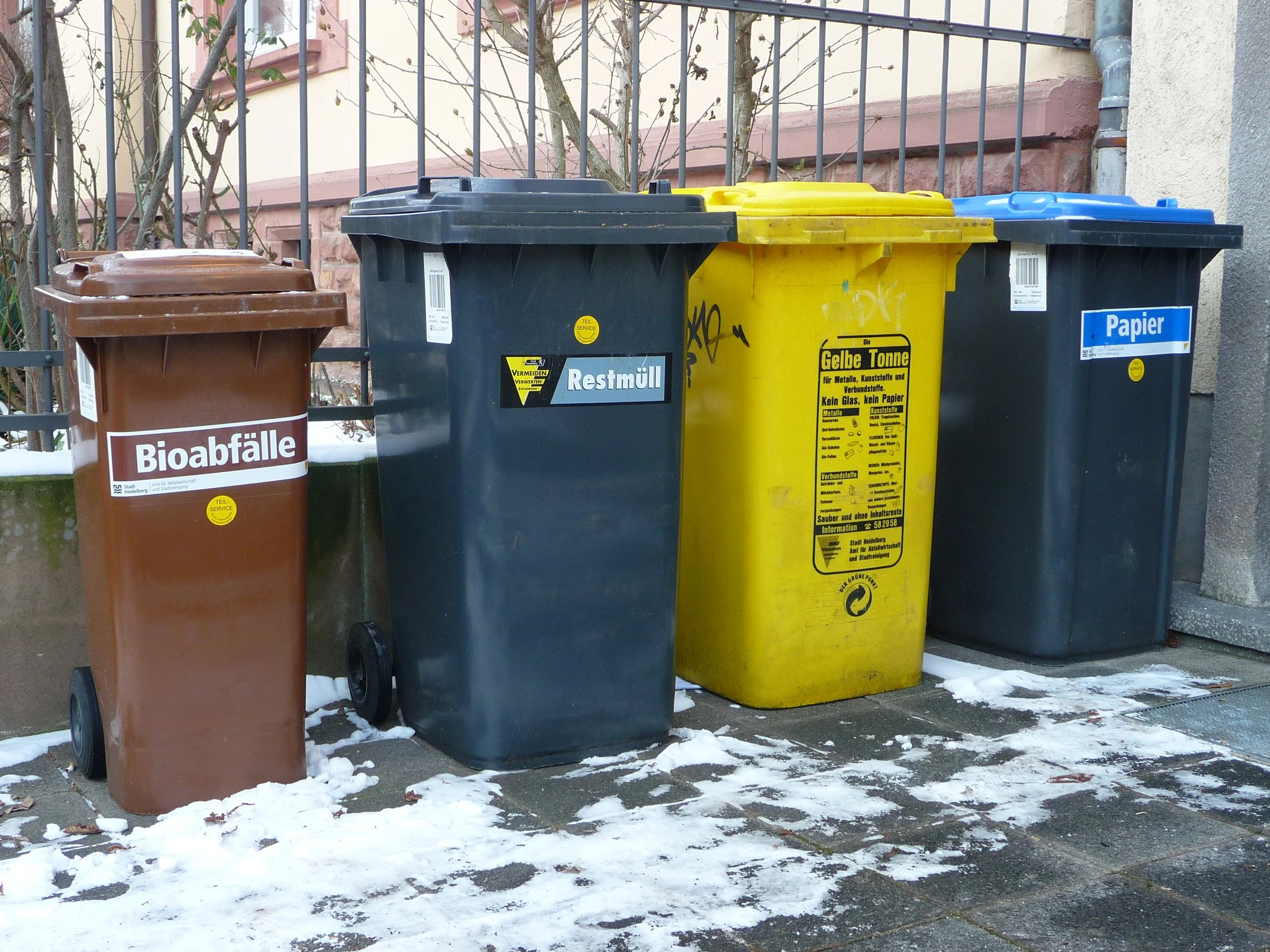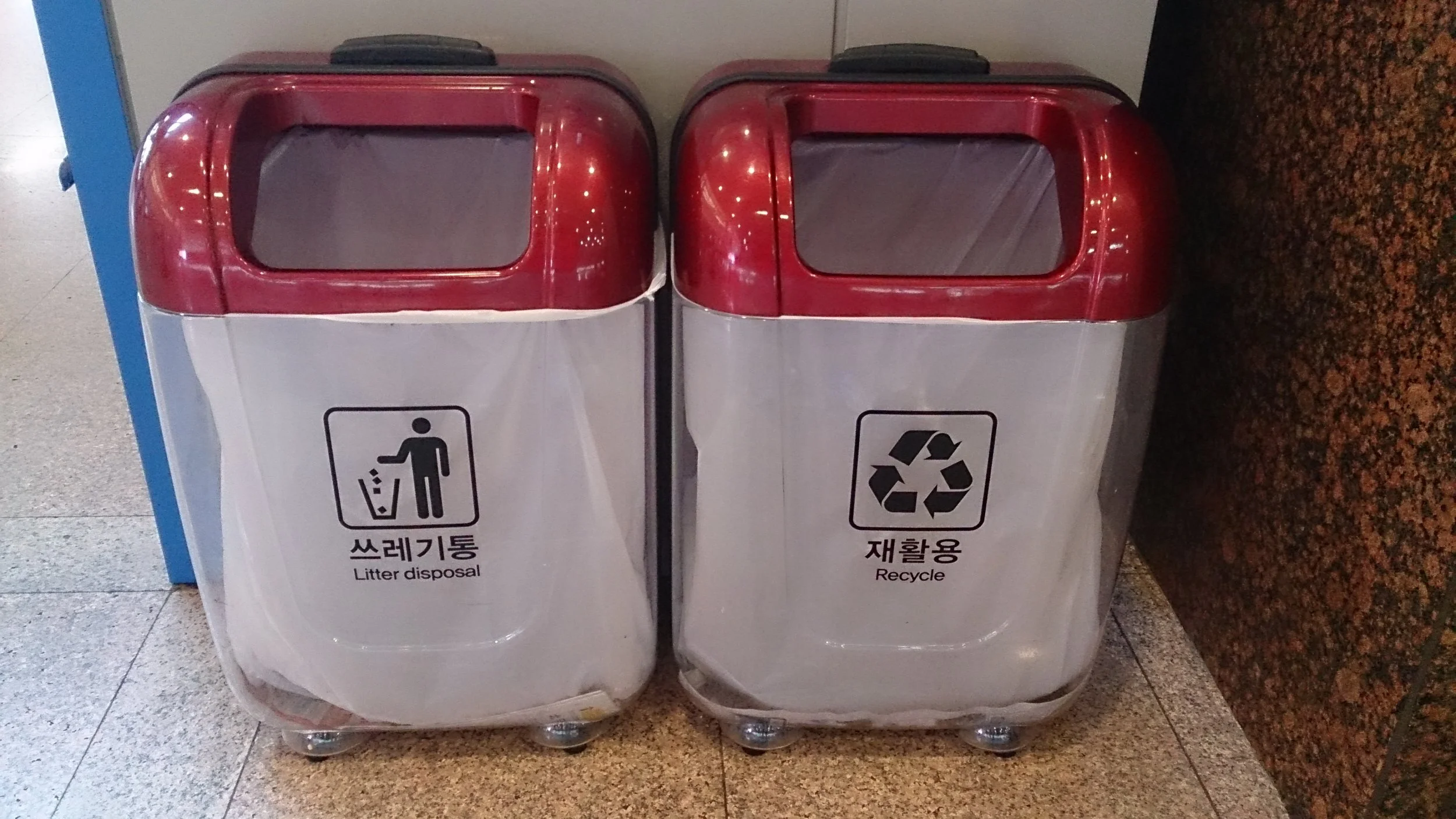Germany, Austria and South Korea recycle 20% more trash than the US. Can they lead the US to a new era of recycling?
Landfill in Danbury, Connecticut, United Nations Photo, CC BY-NC-ND 2.0.
The United States recycles 32.1% of its trash, meaning the other 67.9% of U.S. waste ends up in landfills, is incinerated, or gets lost somewhere else in the environment. Moreover, only 5 to 6 % of plastic ends up being recycled, while 85% of plastic American plastic goes to the landfills, and another 10% is incinerated. These numbers are especially concerning given that plastic is the one of the most difficult types of waste to biodegrade.
Nationally, there are few to no laws in the U.S. that mandate recycling. There have been efforts to change that. On March 5, 2021, Democratic Senator Jeff Merkley and Representative Alan Lowenthal reintroduced the Break Free from Plastic Pollution Act, a bill that would ban single use plastic bags and discourage the use of plastic utensils and straws. In addition, it would increase post consumer recycling minimums to 25% by 2025 and 80% by 2040. However, like many similar bills in the United States, it has not been passed.
While the federal government lags behind, certain states have been considerably more active in promoting recycling. Since 2022, New York has passed two important laws; one demanding that the carpet industry becomes more responsible for its waste and the other allowing consumers to fix their own electronics. California has banned certain types of produce bags, and Michigan has committed to overhauling its recycling system, striving for a 45% recycling rate, albeit without a clear deadline as to when this needs to be achieved.
With that said, even with state efforts, the US still remains far behind the world’s leaders in recycling; Germany, Austria, and South Korea. They recycle 56.1%, 53.8%, and 53.7% of their waste, respectively, each of which is over 20% more than the current US figure and around 10% more than Michigan's new recycling goal. This largely is due to enhanced recycling laws, as well as cultures and practices in those countries that incentivize and engage their populations to be environmentally conscious.
Germany
German Recycling Bins, 3268zauber, CC BY-SA 3.0
The first pillar of Germany’s recycling success is its Deposit Refund System (DRS). In Germany, when consumers purchase a bottle that can be recycled, they must pay a deposit between 0.08 and 0.25 euros. Single use plastic bottles and more environmentally harmful products tend to have a higher deposit. Once the items are returned to a retail store, the consumer will be reimbursed for their deposit. This system has proven to be incredibly successful, reaching a 98.4% return rate. In 2024, Germany plans to expand their DRS to include all milk and dairy product containers.
Germany also has a mandatory recycling system. Each household has four different recycling bins: yellow bins for lightweight packaging, green or blue bins for waste and cardboard, black or gray bins for residual and household waste, and brown bins for compostable kitchen and garden waste. If the waste is not sorted correctly, workers at the recycling plant will go through the waste and sort it manually, and the household that failed to sort the waste will be fined.
Austria
Plastic Bags Package, zeevveez, CC BY 2.0.
Three major policies contribute to Austria’s high recycling rate. First, like Germany, Austria has a rigorous recycling sorting system. Second is the country’s blanket landfill ban. This policy instructs that any item with a total organic carbon emission rate of more than 5% is banned from going into landfills, meaning that the most harmful products have to be recycled. Finally, in 2020, Austria prohibited the use of plastic bags, completely removing one of the longest lasting products in landfills, with a decomposition time of 200-500 years.
South Korea
Recycling bin in South Korea, ProjectManhattan, CC BY-SA 3.0
South Korea’s “pay-as-you-throw” recycling system requires consumers to buy specialized food waste bags, costing about 20 cents. The profits from the food waste bags goes straight back into the recycling market, greatly minimizing the cost of recycling to the government. When these bags are full, consumers leave the bag in a special bin. These bags are then picked up and composted, leading South Koreans to recycle almost 100% of their food waste.
In 2022 Keppel, a Singapore-based company, spent about 600 million dollars to buy EMK Co, South Korea’s biggest waste management and recycling company. Keppel expects the value of their investment in EMK to almost double in five years. South Korea has created a system in which private companies are able to make a profit buying and selling waste, greatly increasing the percentage of their waste being recycled.
It's important to recognize that while all these systems are successful in their own countries, the cultural, political, and economic environment in the US is very different from that of Germany, Austria or South Korea. Additionally, the US has a population about four times the size of Germany, the biggest of the three countries, meaning any recycling measures are much more difficult to implement. Yet, with the US lagging so far behind the world leaders in recycling, it would be foolish to not at least consider the solutions that have worked so well for these other countries.
GET INVOLVED
Keep America Beautiful was founded in 1953. Since then, they have created many different recycling programs, including recently a Cigarette Litter Prevention Program. Within a ten year period, they earned their communities over a billion dollars in economic value, have planted millions of plants, flowers, and bulbs, cleaned over 500 kilometers of roads, and collected over 750 million pounds of litter. You can donate to Keep America here.
Ample Harvest Inc. was founded in 2009 by Gary Oppenheimer as a way to reduce food waste by having gardeners donate their surplus food. Beyond this, they have created an Emergency Food Assistance Program to help food insecure families. Currently, they are working with over 62 million gardeners, spread over all 50 states, allowing them to generate billions of pounds of food they donate to over 8,000 different charities. This has given 4,200 different communities a sustainable food supply free of charge and, in 2020 alone, saved 1.6 million pounds of produce from being discarded. You can donate money to Ample Harvest Inc. here and give your excess food produce to your local food pantry here.
The Container Recycling Institute functions much like a Think Tank, researching recycling so they can provide recycling options and insights to local communities and governments. With a perfect 100% score for Finance and Accountability on Charity Navigator, The Container Recycling Institute, since its founding in 1991, has grown into an incredibly trustworthy Institution. As a leading recycling resource, they helped expand the Connecticut recycling Bottle Bill, the largest expansion of this kind in 10 years. In California, they helped raise the annual consumer recycling budget to over 100 million dollars. You can donate to The Container Recycling Institute here and become a member here.
Jeremy Giles
Jeremy is a Writing Seminars and International Studies major at Johns Hopkins University. He is an avid writer and the Co-Founder of Writers’ Warehouse, Johns Hopkins’ first creative writing group. He is an advocate for Indigenous rights, and studies how Indigenous philosophies can be used to help prevent climate change. Using his writing, he hopes to bring attention to underrepresented voices in today’s world.





